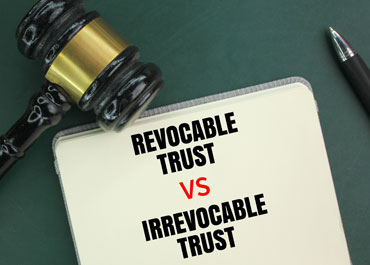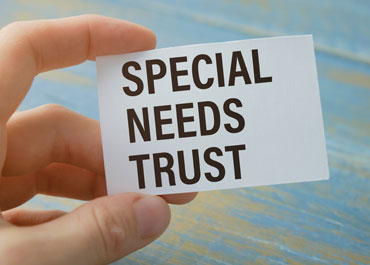
Although estate planning is important for everyone, it is particularly valuable for unmarried partners. With the right estate planning tools, you can help ensure that your partner can make important decisions for you if you become incapacitated and/or inherit money and property if you pass away. Your estate planning tool kit will consist of 7 important documents, including: A last will and testament A revocable living trust (RLT) A pour-over will Financial power of attorney Medical power of attorney Advance health care directive(s) A HIPPA authorization form At Legacy Law Centers, we can help you with all of the above documents, and we will go into more…Read More

When it comes to protecting your unmarried partner, there are several options to consider. Depending on the value of your money and property, your desired level of protection from your partner’s creditors, and other factors unique to your situation, one or more of these strategies may be beneficial. A word of caution: regardless of what methods you use, you must work with an experienced estate planning attorney. While do-it-yourself options may be cheaper, they can sometimes create more problems than they solve, and the problems can be expensive to remedy. Add Your Partner As A Joint Owner On An Account…Read More

Confused about the differences between a will and a trust? If so, you are not alone. While it is always wise to contact experts like us, it is also important to understand the basics. We’ve prepared an easy-to-read reference guide below to help you get up to speed as soon as possible! Advantages Of A Revocable Living Trust Over A Will Avoid conservatorship and guardianship: A revocable living trust allows you to name your spouse, partner, child, or another trusted person to manage money and property you placed in a trust, should you become unable to manage your own affairs. A…Read More

Estate planning is an incredibly important tool, and it’s not just for the uber-wealthy or those thinking about retirement. On the contrary, estate planning is something every adult should do. Estate planning can help you accomplish any number of goals, including appointing guardians for minor children, choosing healthcare agents to make decisions for you should you become ill, minimizing taxes so you can pass more wealth onto your family members, and stating how and to whom you would like to pass your estate on to when you pass away. While it should be at the top of everyone’s to-do list,…Read More

Does your real estate portfolio include properties in addition to your primary residence? If so, the type of ownership you have over your real estate can vary depending upon several key factors. Let’s take a look at some different kinds of real estate and discuss what the best kind of ownership for each may be. Your Primary Residence Your ownership over your home matters because it received a special tax treatment as your primary residence. In some states, married couples can gain creditor protection through tenancy by the entirety. This can protect either of the spouses from their creditors – except…Read More

A properly funded trust allows you to avoid probate, minimize taxes, organize and maintain control of your estate, and provide for yourself and your heirs. In its simplest terms, a trust is a book of instructions wherein you tell your trusted people what to do and when to do it. While there are many types of trusts, the major distinction between trusts is whether they are revocable or irrevocable. Let us take a look at both so you will have the information you need: Revocable Trust A revocable trust is also known as a “living trust” because it can benefit you during your…Read More

Our team at Legacy Law Centers understands that it can be hard to get motivated about your estate planning. Although creating an estate plan sounds about as fun as getting a root canal, it’s crucial if you want to protect your legacy after you pass away. Regardless of your income level, you probably want to make sure that your loved ones are protected and receive your hard-earned money and property when the time comes. Below, we discuss three common roadblocks that often stop people from drafting an estate plan to protect themselves and loved ones: #1: We Don’t Want To Talk…Read More

Our dedicated legal team at Legacy Law Centers understands that there is a wide range of trusts you can include in your estate plan. And while choosing the right type of trust to protect your assets can seem daunting, we are here to listen to your concerns and devise a plan that is tailored to your unique situation. Below, we discuss six common trusts to help you gain a better understanding of your options. Special Needs Trust A special needs trust allows you to leave money or property for the benefit of an individual with special needs without disqualifying them from government benefits. Under federal…Read More

While many of the people who visit our law firm understand that having a comprehensive estate plan is smart if you want to protect your future and family, we also encounter those who don’t follow through and fail to start planning. But do you know what happens if die without crucial estate planning tools? Here is what will generally happen if you die without a will or trust, also known as interstate, and what will happen with a will, and with a revocable living trust. For this example, we assume you have two children, but no spouse: Intestate If you die intestate, then all of the accounts and…Read More

While it is smart to set funds aside for your children’s or grandchildren’s future education expenses, there is still the possibility that not every penny you have set aside will actually be used for college. Some people earn scholarships and no longer need all of the money set aside, while others may attend a trade school that costs substantially less than what you planned for. If you are wondering what you can do with money leftover in a college savings plan, the answer will depend on how you managed the funds. Add Funds To A Health Education Exclusion Trust Funds that are…Read More